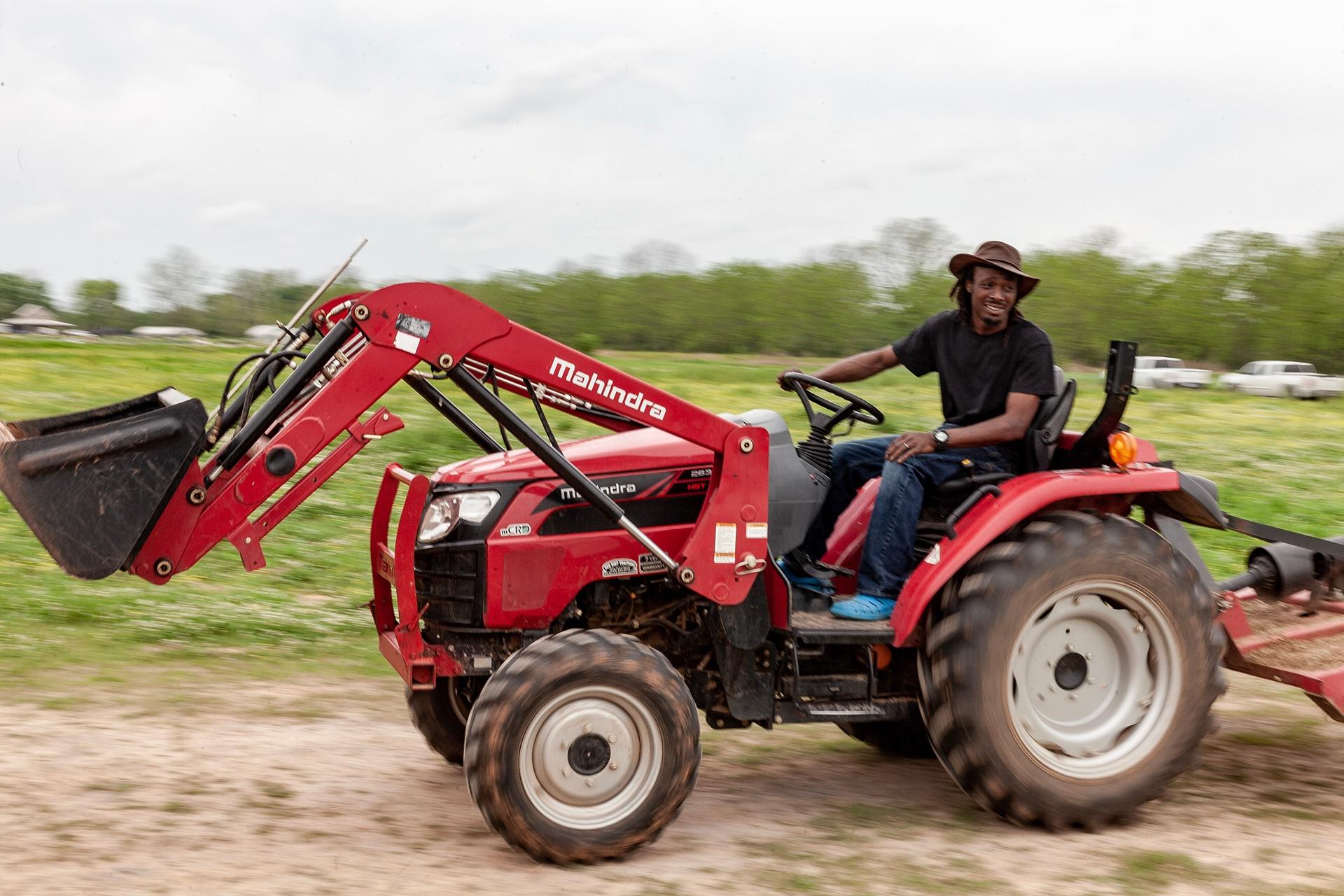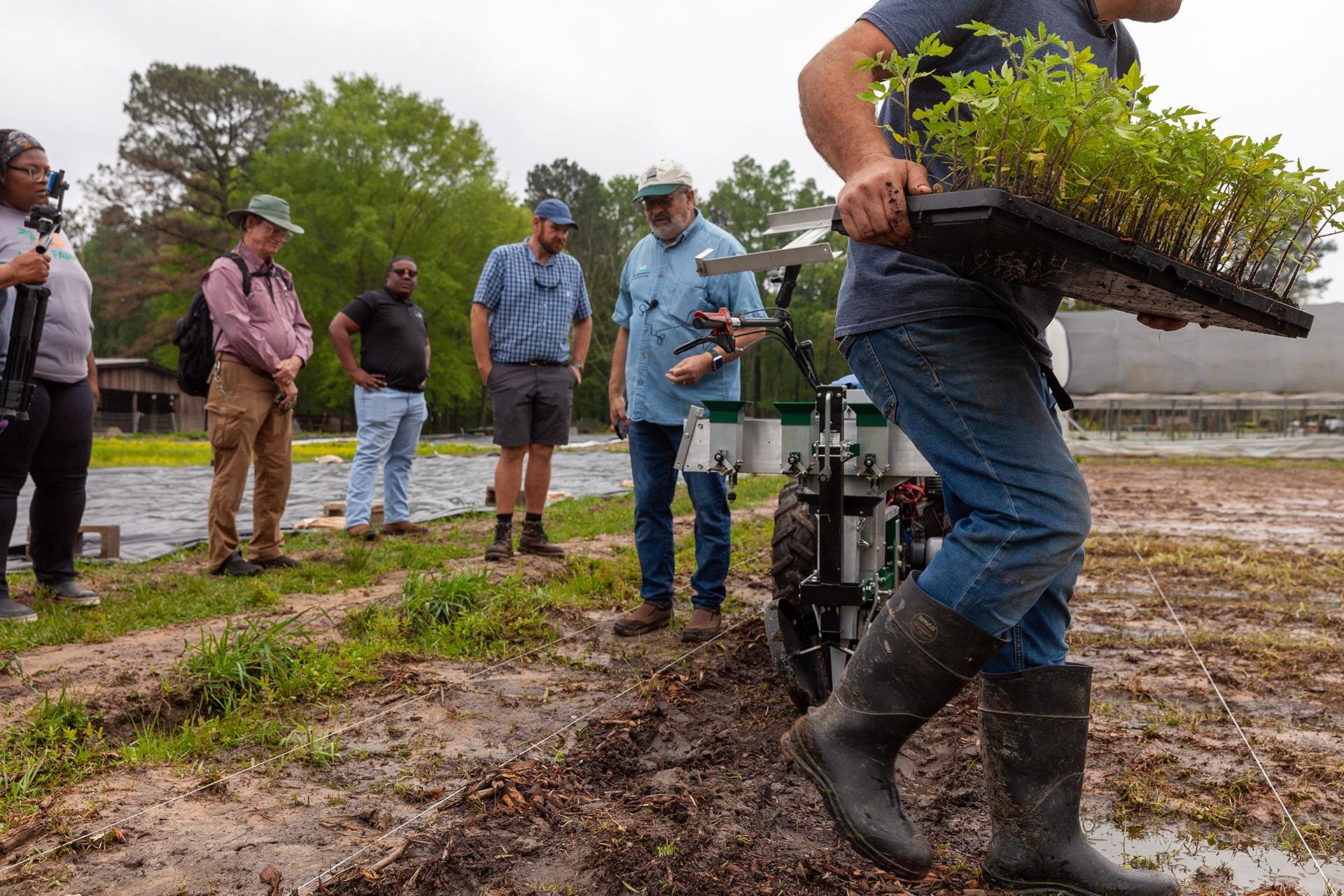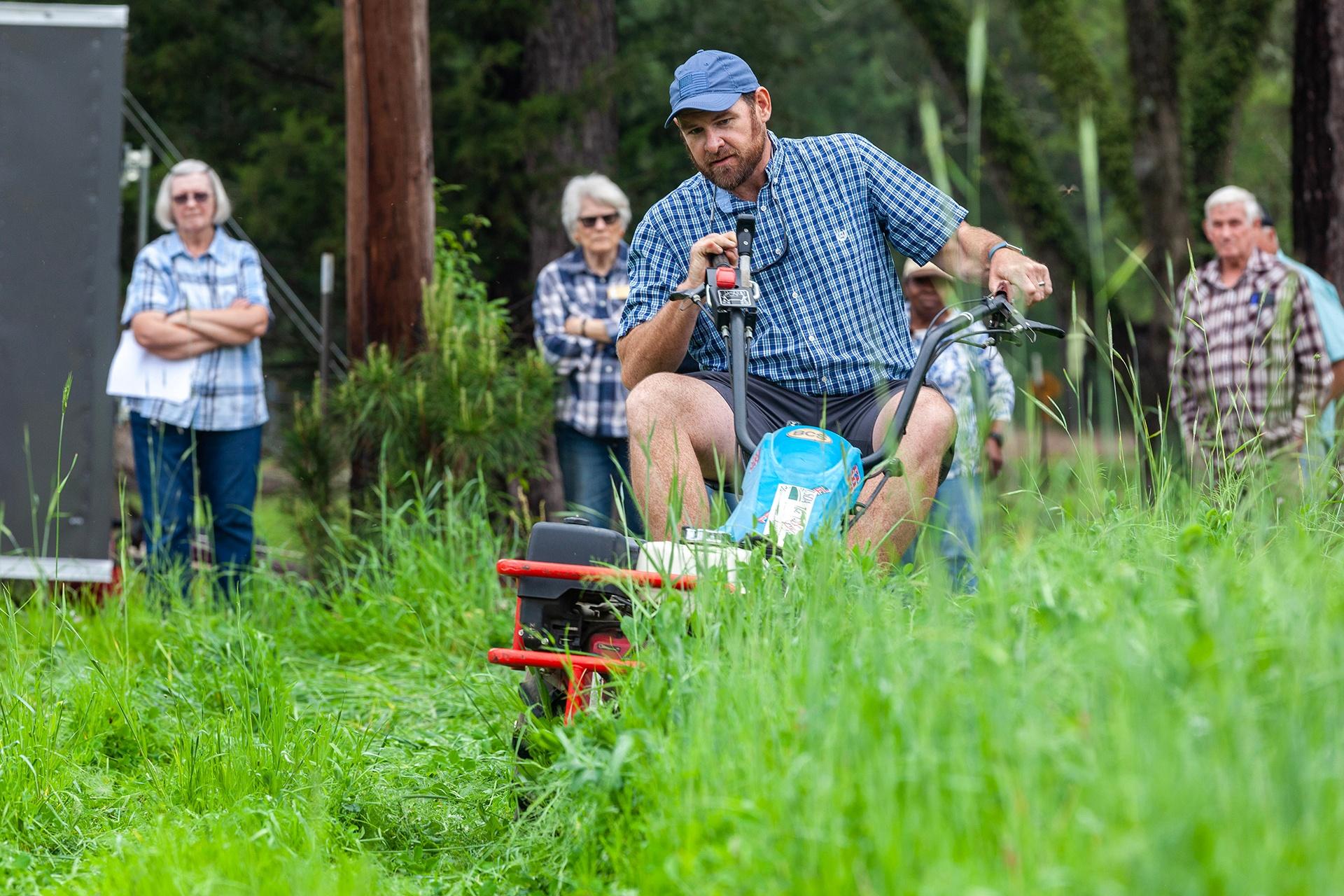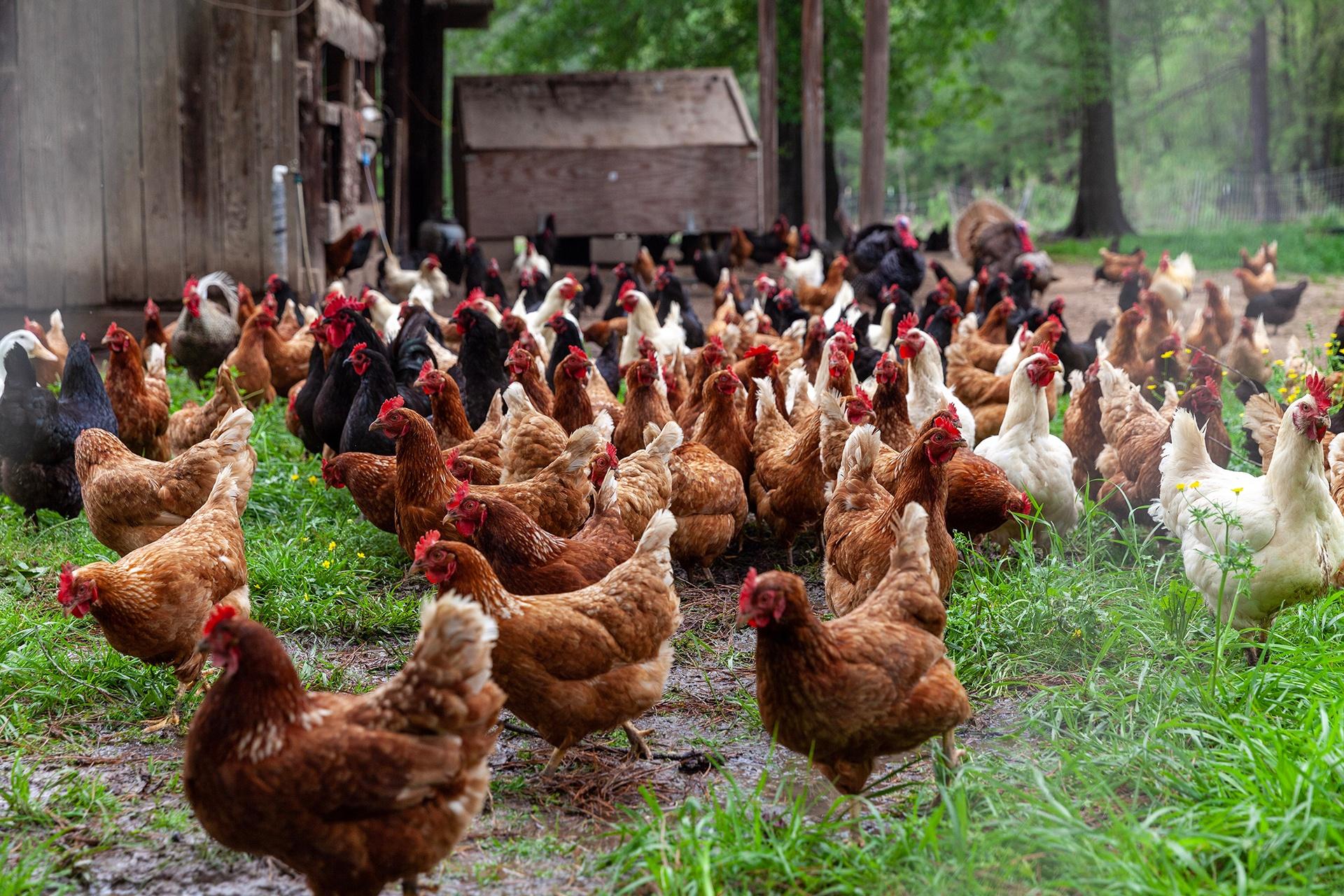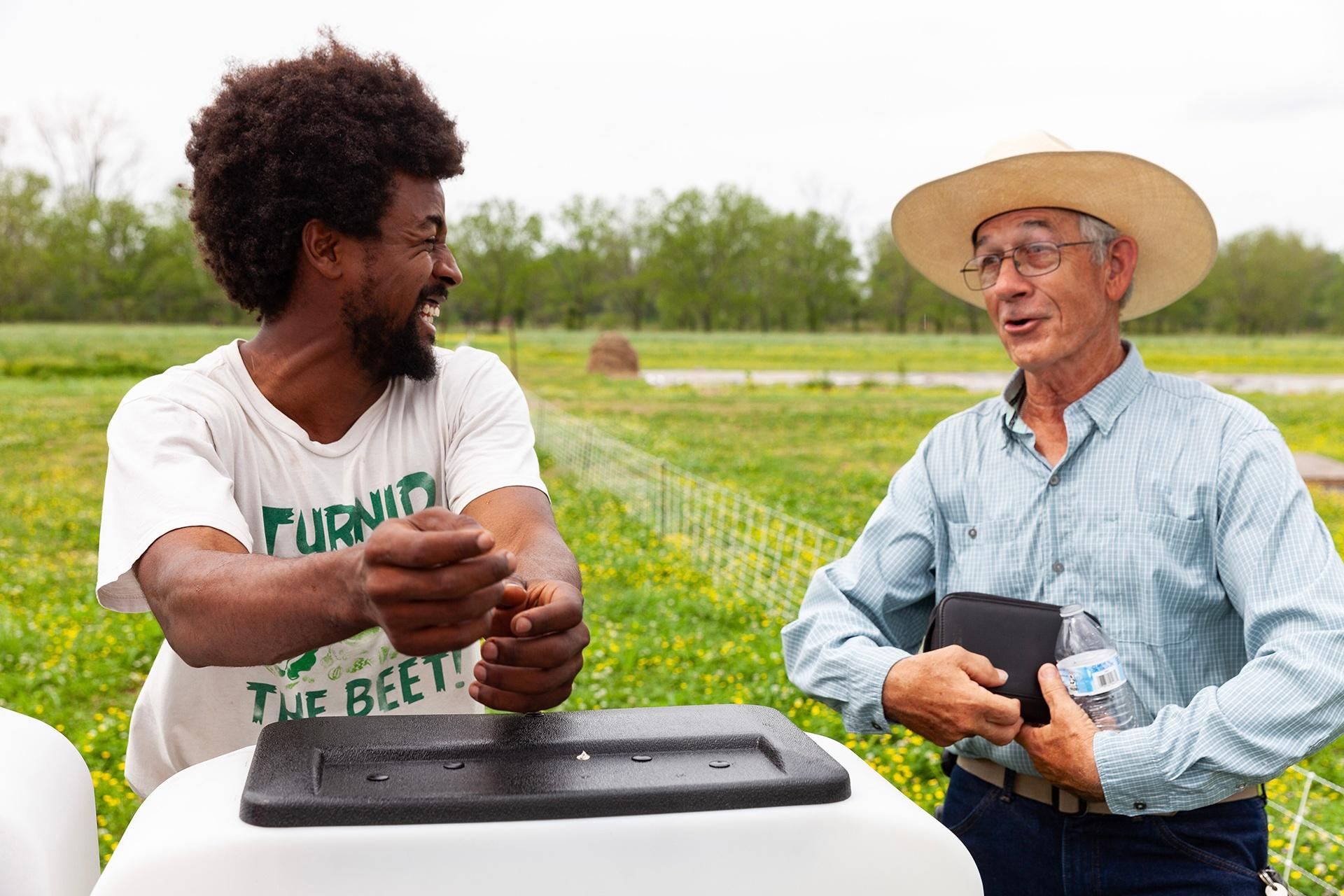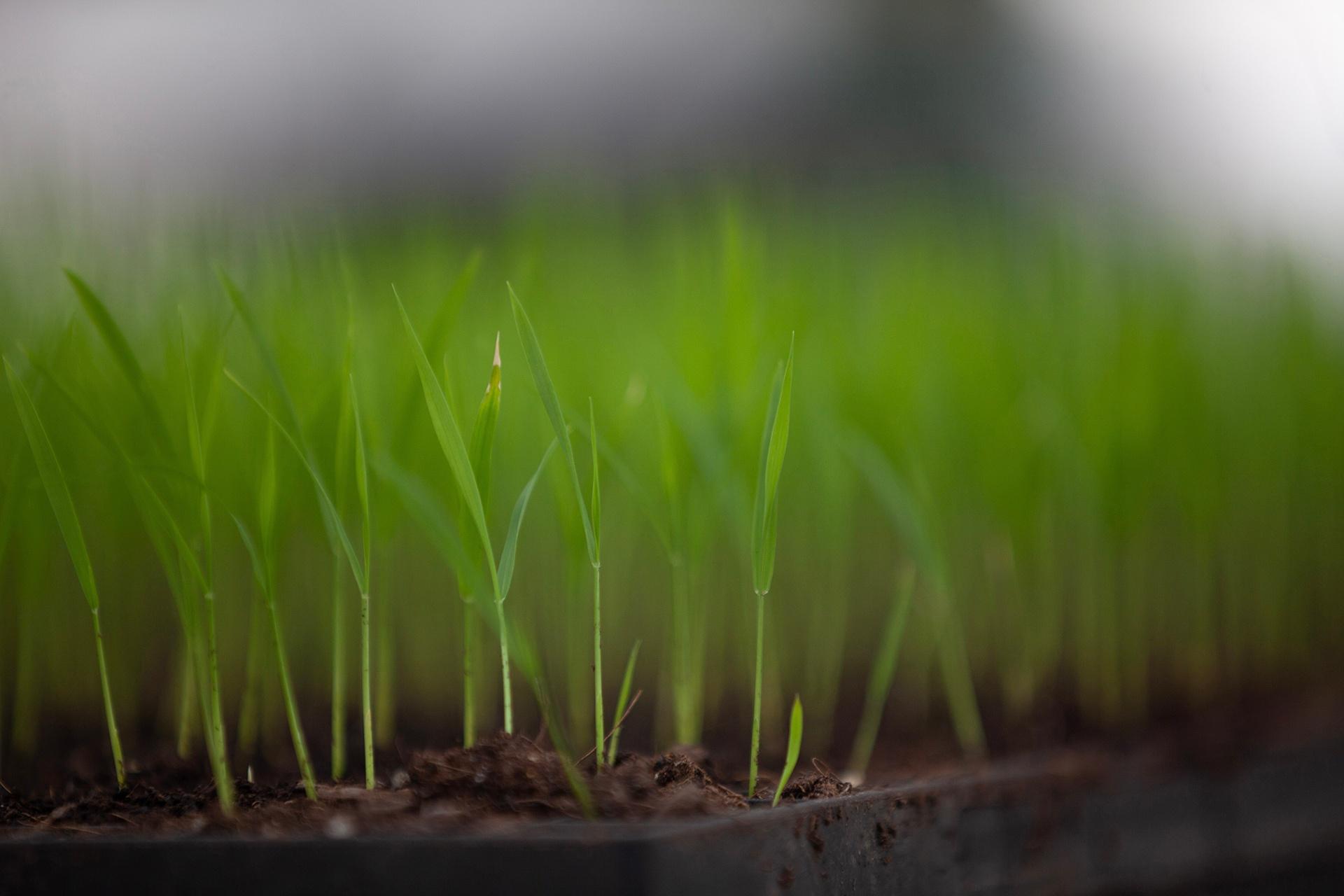This year, Jubilee Justice is running a solar-powered rice mill, which is cooperatively owned by Black farmers and will give each of them a bigger share of the profits from rice production.
This new rice mill is a way for Jubilee Justice to scale up its operations and find more ways to benefit the partnering farmers. The goal is to take what's learned trying to produce higher-quality, higher-yield crops while doing less damage to the environment, and bring it to more farmers throughout the Gulf South.
Bernard Winn, an operation specialist at Jubilee Justice, said he takes a lot of pride in the work that Jubilee Justice is doing. The work he’s done in his short time here is a lot different from his last job at a buffet restaurant.
Less than a year ago, Winn was working both jobs simultaneously — helping with the rice mill during the day, then working his buffet job at night. He remembers feeling conflicted about the two gigs when his bosses at the buffet would tell him to throw away leftover food at night, even when he asked to take some with him to give away.
Eventually, the contradiction between the two roles was too much.
“It got to the point where… how am I trying to save the planet on the one hand during the day, and then at night I’m throwing away pounds of food?” Winn said. “That was my shift.”
The constant push to come up with better, greener farming techniques has been eye-opening for Winn.
“It was completely new to me and to see what’s happening in the way that we can farm regeneratively, without harming the community or the soil or the earth, it's been a sight to see,” Winn said.
This story was produced by the Gulf States Newsroom, a collaboration between Mississippi Public Broadcasting, WBHM in Alabama, WWNO and WRKF in Louisiana and NPR.
